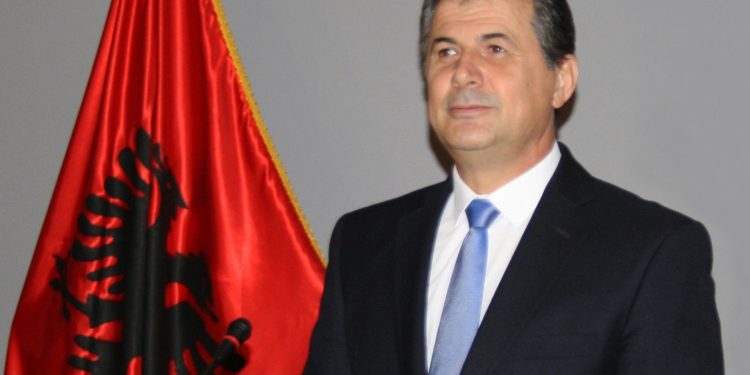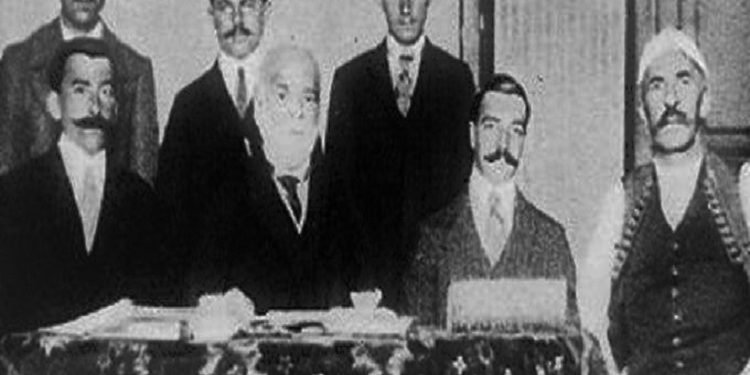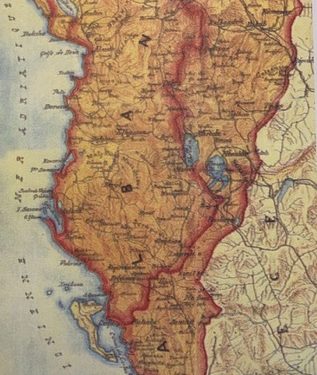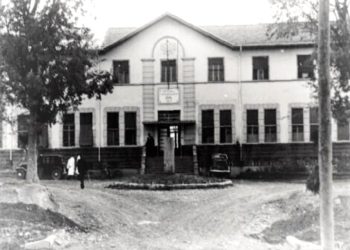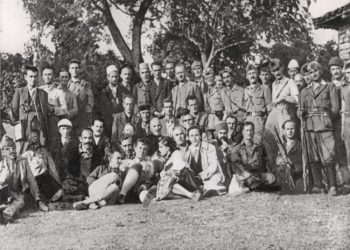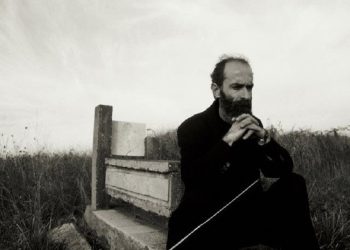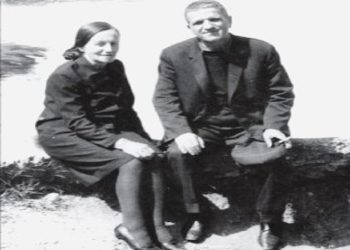By Ekrem Spahiu
Memorie.al/November 28, 2022: 110 years independent as an Albanian state, but divided in half as a nation. As much as a historical achievement, as much as a national drama. But all divided nations have a natural right to live together. World history is enough to prove this right.
On that great day of November 28, 1912, the great men of the nation, led by Ismail Qemali, who came from all ethnic backgrounds, declared Albania’s independence within its natural borders. The Assembly of Vlora was the Assembly of all Albanians. The independence declared in Vlora was the independence of all ethnic Albania. This was not only the will, but also the official voice of the Albanian government of Ismail Qemali in relations with the great powers and other states of the time. The declarations and notes of protest, which this government sent to the Balkan states and their military commands, in which they demanded the immediate removal of foreign military forces from the occupied Albanian territories and their return to Albania, were made in the name of the National Assembly that represented all the lands inhabited by Albanians.
The great act of November 28, 1912 sanctioned the undeniable historical right of the Albanian nation to be united, free and independent in its own lands, alongside the other peoples of the Balkan Peninsula. It was a right that stemmed from his being as a people, with his own language, culture, individuality and history, a right earned with countless struggles and sacrifices since the unparalleled endurance of the European dimensions of the National Hero – Gjergj Kastriot, as well as during five centuries, against the Ottoman invaders.
The Europe of the time could not erase Albania from the map (although some of the powers of the time would like to do that too!), but it still did its part: it satisfied everyone’s geopolitical interests exactly on the back of the Albanian nation, recognizing a half of Albania. It is the only nation that was subjected to such a serious crime.
It was a crime, which the USA and Europe realized late, almost a century later, when they realized that without pacifying the Albanians – that is, without atoning for the crime or guilt against them, neither the Balkans nor Europe can have peace. This was the reason why the USA and Europe carried out the most morally clean war in their history: they stopped the genocide against the two million Albanian people of Kosovo, practically genocide against the entire Albanian nation that had given so much to Europe. Thus, the USA and Europe were cleared of two sins at once, paying off a part of the guilt anyway.
The Albanian state has continuously had and is fully committed to the national unity of the nation. King Zog, both in terms of national obligation and the nature of the royal regime, codified the necessity of national unity in the Basic Statute of the Kingdom, which affirmed the unwavering desire for the eternal strengthening of national unity. This Statute, approved by the Constitutional Assembly of that time, declared Ahmet Zogun – King of all Albanians. This was not just a nationalist proclamation, but a national obligation. It was for this reason that, among other things, in his oath, it was written that he would preserve national unity, state independence and territorial integrity. It was for this reason that the army of the time of the Albanian Kingdom was said to be the “National Army” and that national security was guaranteed by “National Defense.”
In this inflexible consequence, King Leka also continued. It was precisely this reason for his determination that in 1976 he founded the Council for the Liberation of Ethnic Albania, and at the same time he was elected Commander of the National Army for the Liberation of Ethnic Albania. During 1977, he intensified his actions and political demarches against the communist regime in Tirana. But this activity would cause Spain (an ardent applicant to join the United Europe) to withdraw in the face of the pressure of some countries that complained that the fall of the communist government in Albania would also result in the destabilization of Yugoslavia. Therefore, the Spanish government requested the termination of King Leka’s activity, forcing him to leave in January 1979 to Rhodesia and then to South Africa.
Also, King Leka did not compromise when he was asked that his visit to Belgium in 1989 be allowed only in exchange for not mentioning Ethnic Albania. To continue: the massive vote of the Albanian people for the royal form of the regime in the referendum of June 29, 1997 proved, in the first place, the belief in national unity that the Monarchy has as its main pillar; the magnificent reception given by the Albanian people to the return of the Royal Family to the homeland on June 28, 2002; the long-awaited visit of King Leka to Kosovo in April 2009, where the entire political spectrum and the Albanians of Kosovo reserved a dignified and fraternal reception for him; etc., clearly show that the entire Albanian space is eager and ready for national unification. Moreover, every obligation and official honor performed by the Albanian state for the Royal Family has also been an evocation for national unity.
Almost the entire Albanian political spectrum after the fall of the communist regime, regardless of political differences, all political parties have been and remain coherent for the national issue, but in contrast, two nationalist political parties of Albania with early political history (Legaliteti and Balli ), have preserved and announced not only the aspiration, but also embodied in their program the creation of an ethnic Albania and the creation of conditions for the spiritual and political union of the Albanian people, for a free Albanian state within its natural borders.
In the period of terror and genocide of Serbia in Kosovo, the entire Albanian political spectrum gave its motto in fulfillment of the aspiration of the national issue, when in June of 1998, it was declared publicly and unanimously under the motto: “One nation – one attitude”. In November of the same year, this political will of the centuries-old aspiration of the Albanian people for national unification was also expressed in the Constitution. The implementation of the long-standing project “One language – one primer” constitutes precisely one of the pillars that materialize this aspiration.
This process is coming naturally to the right of the Albanian nation for union, with the specifics it has and understanding with the internationals. Of course, we also have interests in the European integration processes, as well as converging interests with the great friendly powers.
Therefore, such issues of major national interest require smart and long-term policies. The royal alternative, historically, deeply and practically, has shown that it is closer to this major national objective./ Memorie.al




